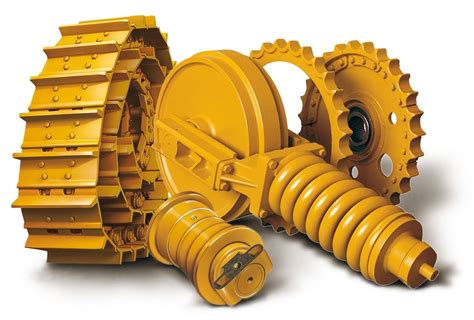who invented mini excavator An excavator, also known as a digger, is a heavy construction machine with a boom, stick, bucket and cab on a rotating platform. Learn about the different types, uses and configurations of excavators, such as hydraulic, crawler, mini and dragline excavators. At Gardenworx, when you hire a mini digger or excavator, we provide a trained driver operator as part of the package. It’s the perfect solution for folks who want to tackle their own landscaping projects while still having the expertise of a professional behind the controls.
0 · world's largest excavator
1 · what is an excavator
2 · undercarriage of an excavator
3 · history of an excavator
4 · first ever hydraulic excavator
5 · excavators wikipedia
6 · excavators and their purposes
7 · demolition of excavators
Fenton Plant Machinery are plant machinery dealers based in Telford, Shropshire. We specialise in the sale of second hand plant machinery including mini diggers, crawler excavators, site dumpers, dump trucks, rollers and telehandlers from all .
The Scottish inventor James Watt and the English entrepreneur Matthew .

The compact excavator has its origins with equipment manufacturer Akio Takeuchi who founded the Takeuchi Manufacturing company in 1963. Created as an improvement to overcome issues that other manufacturers typically ignored. The Scottish inventor James Watt and the English entrepreneur Matthew Boulton developed the first steam-powered excavator back in 1796. The first patent was granted to William Otis for his steam-powered partial oscillator – a construction machine on a railway chassis whose boom could only be partially rotated.
An excavator, also known as a digger, is a heavy construction machine with a boom, stick, bucket and cab on a rotating platform. Learn about the different types, uses and configurations of excavators, such as hydraulic, crawler, mini and dragline excavators.
In 1930, the two brothers, Carlo and Mario Bruneri, started repairing and manufacturing tipping trucks, tractors and later building machines in the Turin suburbs, specifically wheel excavators and hydraulic crawlers. The very first excavator to use hydraulic technology was built in 1882 by Sir W. G. Armstrong & Company in England, where it was used in construction of the Hull docks. Unlike today’s excavators that use hydraulic fluid, water was used to operate the hydraulic functions. In 1897, the company Kilgore Machine Co., based in Minneapolis, patented an excavator, using steam, but operated with a hydraulic system. Like the hundreds of excavators that dug the Panama canal at the beginning of the 20th century, the excavators from this era were mounted on rails and weren’t very mobile.
Bobcat Company was founded by brothers Louis and Cyril Keller, who invented the first three-wheeled compact loader in 1958. The company has since expanded its product lineup to include excavators, utility vehicles, tractors, mowers and more, . The wheeled self-propelled mini excavator is not only able to fit onto the tight construction sites, but is the world’s first mini excavator. Following the success of the YNB300, Yanmar released the YNB600C. Learn about William Otis, the American engineer who developed the world's first steam shovel and excavator in the 1830s. His innovations revolutionized earthmoving and mining, and paved the way for modern hydraulic excavators.
Takeuchi manufacturing began in 1963 and has been a pioneer in the compact equipment industry. Takeuchi developed the world’s first compact excavator in 1971, and our innovation continued again in the mid-80’s with the introduction of the first compact track loader.The compact excavator has its origins with equipment manufacturer Akio Takeuchi who founded the Takeuchi Manufacturing company in 1963. Created as an improvement to overcome issues that other manufacturers typically ignored. The Scottish inventor James Watt and the English entrepreneur Matthew Boulton developed the first steam-powered excavator back in 1796. The first patent was granted to William Otis for his steam-powered partial oscillator – a construction machine on a railway chassis whose boom could only be partially rotated.An excavator, also known as a digger, is a heavy construction machine with a boom, stick, bucket and cab on a rotating platform. Learn about the different types, uses and configurations of excavators, such as hydraulic, crawler, mini and dragline excavators.
In 1930, the two brothers, Carlo and Mario Bruneri, started repairing and manufacturing tipping trucks, tractors and later building machines in the Turin suburbs, specifically wheel excavators and hydraulic crawlers. The very first excavator to use hydraulic technology was built in 1882 by Sir W. G. Armstrong & Company in England, where it was used in construction of the Hull docks. Unlike today’s excavators that use hydraulic fluid, water was used to operate the hydraulic functions.
world's largest excavator
In 1897, the company Kilgore Machine Co., based in Minneapolis, patented an excavator, using steam, but operated with a hydraulic system. Like the hundreds of excavators that dug the Panama canal at the beginning of the 20th century, the excavators from this era were mounted on rails and weren’t very mobile.Bobcat Company was founded by brothers Louis and Cyril Keller, who invented the first three-wheeled compact loader in 1958. The company has since expanded its product lineup to include excavators, utility vehicles, tractors, mowers and more, . The wheeled self-propelled mini excavator is not only able to fit onto the tight construction sites, but is the world’s first mini excavator. Following the success of the YNB300, Yanmar released the YNB600C. Learn about William Otis, the American engineer who developed the world's first steam shovel and excavator in the 1830s. His innovations revolutionized earthmoving and mining, and paved the way for modern hydraulic excavators.
case 100 hp skid steer
case 1816 skid steer attachments
what is an excavator

undercarriage of an excavator

On weekends, the price might be around $20 to $30 more, but weekly hire can be less expensive than daily hire, ranging from $600 a week for a smaller dingo to $800 per week for a larger dingo. A dingo is a mini excavator that can .
who invented mini excavator|excavators and their purposes